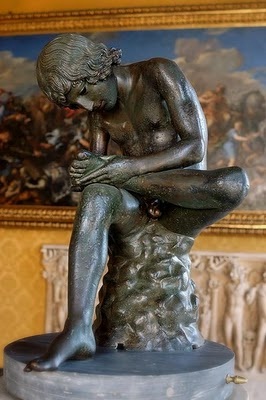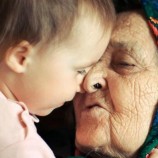The very well known Greco-Roman sculpture “Spinario”, a brilliant work by an anonymous artist, dated 1st Century AD, Hellenistic period, is of an adolescent boy wholly dedicated to the endeavor of withdrawing a thorn from his foot. Only one toe was injured, but the entire body reacts and hunches over the violated limb. The artist, in his brilliance, succeeds in reproducing the muscular tensions of the entire body, all concentrated on the task of attending to the need of one small limb in particular.
It would be difficult to find a more realistic image of that which, within the Church, is called “Communion of Saints”. That which affects every Christian equally affects the eclectic body as a whole. We live – all who are baptized – inseparably involved in a process of salvation and sanctification in which none are left out.
On the other hand, the fact that there is no ivory tower for the Christian leaves us all exposed to the consequences of the sins of the ecclesial community as a whole. We share in the grace, yes, but in a manner of speaking, we also share in sin. Every scandal verified within the Church’s body affects all of its members. The pain is one. The shame is too. No one can say: this sin is not mine. At the very least, we hold the responsibility to have prayed less, to have given shallow testimony, lacking conviction. To have indulged in laziness, routine, disregard, indifference: our little every day sins…
None would deny the merits of Jesus Christ, of the Mother of God and of the legion of saints who contributed so that the grace of salvation may reach every one of us. Similarly, a sound conscience would not deny that our sin ends up falling upon the shoulders of all the members of Church, scandalizing, discouraging, disillusioning…
The traditional images of the members of a one body (Pauline texts – 1Cor 12,12 ss, for example) and The Vine and the Branches (John 15) only confirm this fact. A sick branch defileth the whole bush. An inflamed organ infects the entire organism. No one can claim to be exempt from this contagion.
The closing of this reflection points clearly to our individual responsibility over Church life. If the Church is not better, it is because we are not better. Although, it seems, that I do not have any right to complain of the flaws and sins committed by my brothers of faith.
Related Articles
















